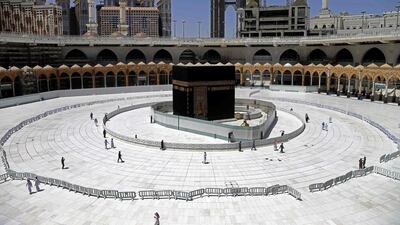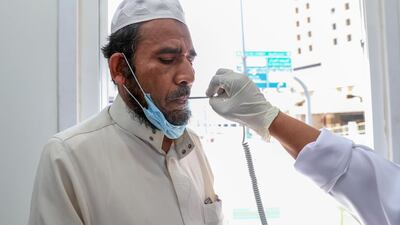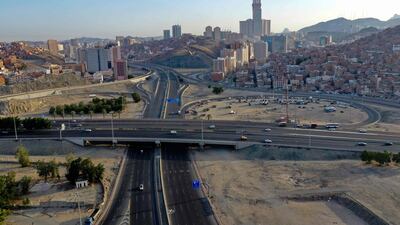The number of people infected with the coronavirus in Saudi Arabia has passed 100,000, the official Saudia TV channel said on Sunday, as a surge in cases accompanied the easing of restrictions.
The number of cases in the kingdom have reached 101,914, of whom 712 have died.
The Health Ministry confirmed 3,045 new cases and 36 new deaths in the previous 24 hours.
Official daily cases passed the 3,000 threshold for the first time on Saturday.
The capital Riyadh accounted for the largest share of the daily cases announced on Sunday, with 717 infections, followed by 623 in Makkah and 351 in Jeddah.
Over the past fortnight, Saudi authorities have relaxed most restrictions related to the coronavirus, except for social distancing.
But last week the government re-introduced a curfew in Jeddah and suspended work in the public sector and private enterprises in the city.
Public prayers had also been suspended and dining in all restaurants and cafes prohibited.
Riyadh has had the most cases at 24,957, then Makkah with 17,616 cases and Jeddah with 17,215.
Elsewhere in the Gulf, cases continued to rise in Kuwait.
Authorities on Sunday reported 717 more cases, a sharp increase from the day before when 487 cases were announced. The total number of cases in the country now stands at 31,848.
On Twitter, the Kuwaiti Ministry of Health posted the new figures and issued a breakdown of their nationalities.
Eighty-eight of the new cases were Bangladeshis, 81 were Egyptians and 79 were Indians.
Authorities also announced 10 more deaths from coronavirus in the country. The death toll now stands at 264.
More than 11,000 cases remain active and 196 are critical.
The recovery rate in Kuwait stands at 53.6 per cent, the ministry said, with 15,750 recoveries recorded since the start of the outbreak.
In Qatar, there have been 67,195 cases and 51 deaths, according to the latest figures.
In Bahrain, officials have reported 14,383 cases and 24 deaths.
Bahrain postponed the resumption of Friday prayers last week after a surge in coronavirus cases on Wednesday.
“The increase in cases is due to the failure of citizens to abide by precautionary measures as well as public gatherings during the holy month of Ramadan and Eid Al Fitr,” a government official said.
Bahraini authorities chose not to enforce an economic lockdown during the holiday period, but imposed restrictions on public gatherings and closed mosques in March.
The government said it would monitor the spread of the virus before announcing a new date to allow congregational prayers to resume in mosques and religious areas.
Officials in Oman have confirmed 16,016 cases and 72 deaths as of Sunday.
Although restrictions were eased late last month, Omani officials have urged the public to follow health regulations to reduce the spread of the virus.
_________________________________________

























